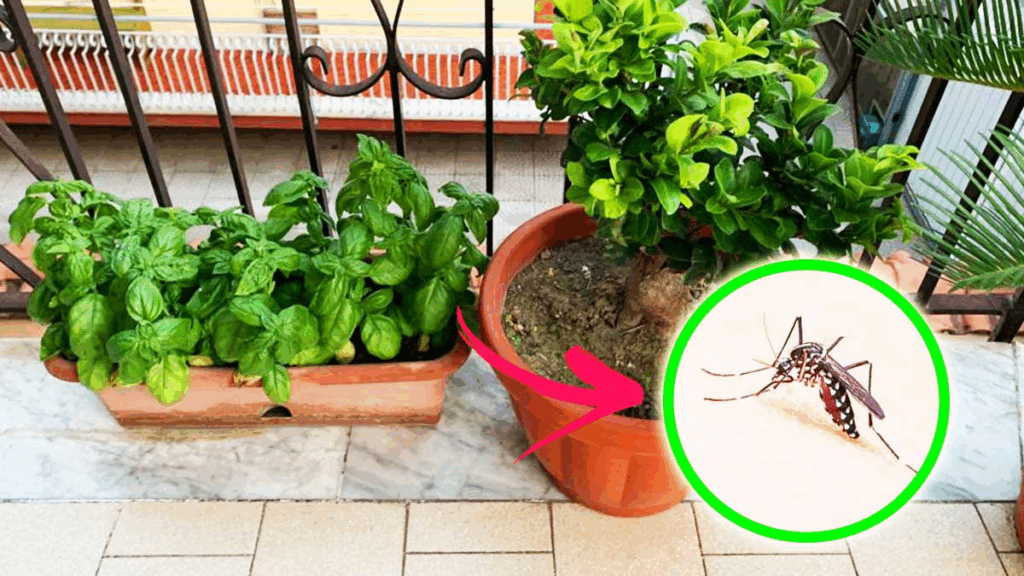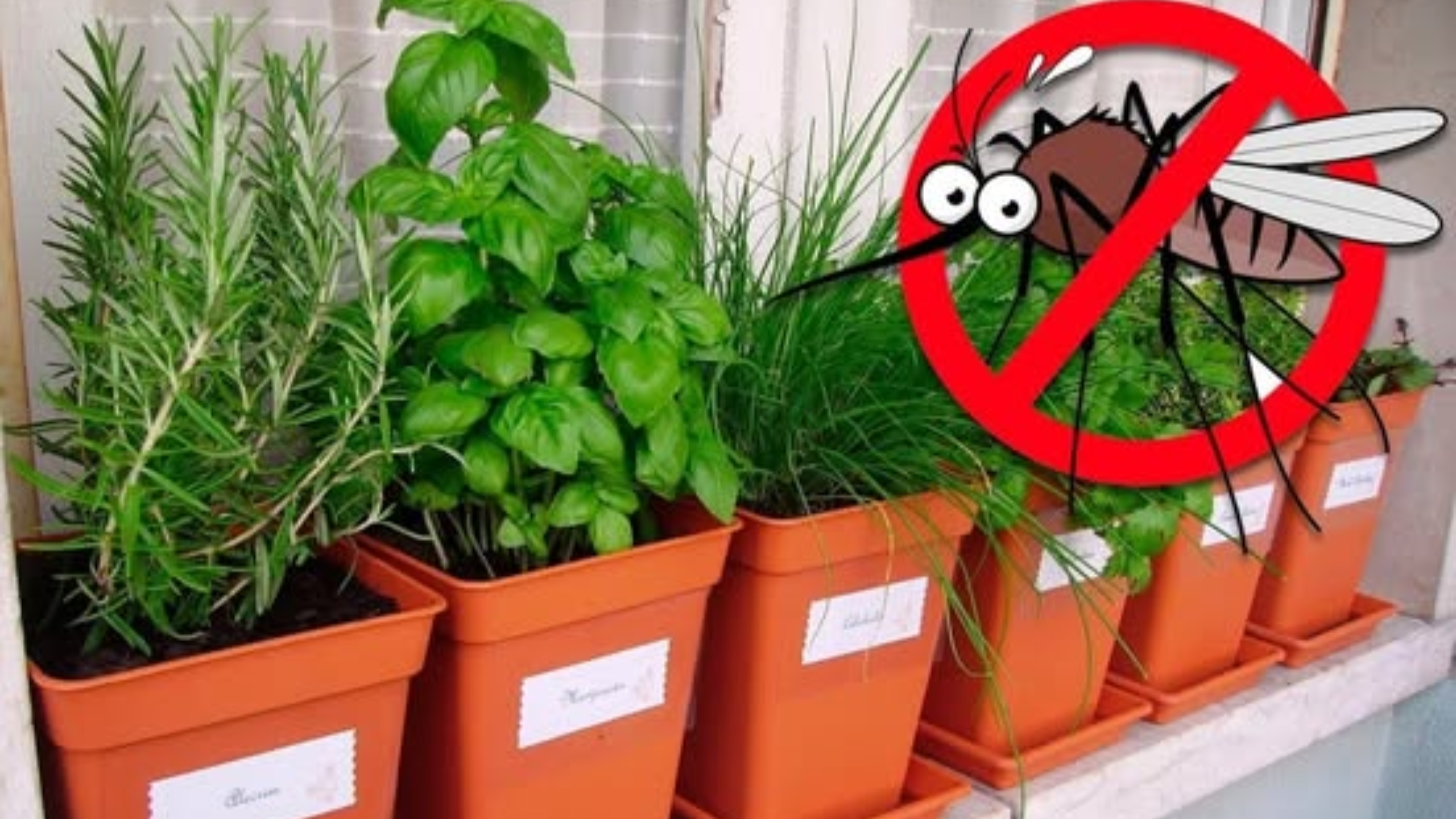Few things are as frustrating as insects invading your living space. Whether it’s pesky ants marching across your kitchen counters, spiders lurking in corners, annoying flies swarming your food, or mosquitoes threatening your peaceful nights, these intruders can quickly turn your home into a battleground.
While chemical insecticides are an option, many people seek safer, eco-friendly ways to protect their homes—especially methods that don’t pose health risks to their families or pets. Luckily, certain plants not only enhance your home’s aesthetic but also act as natural repellents. We’ll explore five fantastic plants that help keep those unwelcome guests outdoors, offering a gentle, fragrant, and effective defense.
Why Choose Plants Over Chemical Insecticides?
Many commercial insect sprays contain harsh chemicals that may be effective in the short term but can linger in your environment, potentially affecting your health. Some chemicals can cause allergic reactions, respiratory issues, or long-term health problems, especially with frequent use. Plus, they often harm beneficial insects and pollinators.
Using plants as natural repellents is a safer, more sustainable choice. They release natural compounds that insects find unappealing, helping to create a barrier without risking your health.
1. Eucalyptus: Nature’s Spider Repellent
If spiders bother you, plants like eucalyptus are your friends. The scent of eucalyptus oil is known to deter spiders effectively. Scientific studies, including a 2018 research paper, confirm that eucalyptus oil is one of the most potent natural repellents against these creepy crawlers.
How to use it:
Plant eucalyptus in your garden or keep a potted eucalyptus near entry points, windows, or in your living room. The aromatic oil continuously emitted by the plant creates a scent barrier that spiders tend to avoid.
Fun fact:
Eucalyptus also has antimicrobial properties and can help freshen indoor air.
2. Basil: Fragrant Defense Against Mosquitoes

Basil isn’t just great for cooking—it’s a natural mosquito repellent. The strong aroma of basil disrupts mosquitoes’ ability to locate hosts, making it an excellent choice for outdoor patios or balcony gardens.
How to use it:
Place pots of basil near seating areas, doorways, or windows. Crushing fresh basil leaves can release a more potent scent, enhancing its repellent power. It’s also easy to grow in pots on your balcony or windowsills.
Did you know?
Basil is also effective against flies when its aroma suffuses the area, so it’s double-duty during the warmer months when insect activity rises.
3. Lavender: Pleasant-Smelling Yet Effective
Lavender is loved for its calming scent, but insects like flies, mosquitoes, and fleas hate it. Its strong aroma acts as a natural repellent, making it a favorite in many gardens and homes.
How to use it:
Plant lavender in flower beds, pots, or window boxes. The more you harvest and dry its blooms, the stronger its scent remains, continuing to ward off pests.
Additional benefit:
Lavender’s fragrance promotes relaxation and better sleep—so protecting your home from insects also improves your well-being!
4. Rosemary: An All-Purpose Insect Protector
Rosemary isn’t just for seasoning your pasta; it’s a versatile plant that keeps a broad range of insects at bay. It’s especially effective against spiders, ants, flies, and even scorpions.
How to use it:
Keep a rosemary bush near entry points, your porch, or garden beds. Its aromatic oils serve as a natural deterrent, making it less likely for insects to invade your home.
Pro tip:
Crush fresh rosemary leaves and sprinkle them around doorways or windows for an extra layer of protection.
5. Sage: A Strong Odor Deterrent
Sage is known for its pungent smell, which many insects dislike. Both fresh sage indoors and dried or potted sage on balconies can create a barrier to keep pests away.
How to use it:
Burning sage bundles can also serve as a natural insect repellent indoors. Alternatively, place sage plants near your doors and windows for continuous protection.
Interesting insight:
Sage has antimicrobial properties as well, making it a beneficial addition to your natural pest control arsenal.
Final Thoughts: Turning Greenery Into a Pest-Free Sanctuary
Incorporating these plants into your home and garden not only beautifies your space but also provides a safe, eco-friendly way to manage insect intrusions. Whether you choose eucalyptus for spiders, basil and lavender for flies and mosquitoes, or rosemary and sage for a broad-spectrum defense, each plant offers unique benefits.
Want to maximize their effectiveness? Place them near known entry points like doors, windows, or patios. Combine a few varieties for comprehensive coverage and a fragrant, pest-free home.
Have you tried using plants for natural pest control?
Share your experiences or ask questions below! Together, we can create a safer, greener space.


amoxil cheap – combamoxi purchase amoxicillin sale
order generic diflucan 200mg – https://gpdifluca.com/ diflucan canada
escitalopram brand – on this site escitalopram for sale online
cenforce online order – site buy cenforce pill
cialis 10 mg – https://ciltadgn.com/ what does cialis do
is cialis covered by insurance – https://strongtadafl.com/# buying cialis
viagra 50mg price – herbal viagra **** ireland viagra sale essex
ranitidine pills – order generic zantac 150mg order zantac pills
More articles like this would frame the blogosphere richer. buy amoxil generic
I couldn’t weather commenting. Adequately written! https://gnolvade.com/
Thanks an eye to sharing. It’s top quality. https://prohnrg.com/product/get-allopurinol-pills/
Greetings! Very serviceable advice within this article! It’s the little changes which wish turn the largest changes. Thanks a quantity in the direction of sharing! https://ursxdol.com/furosemide-diuretic/
I’ll certainly bring to read more. https://aranitidine.com/fr/levitra_francaise/
Thanks for sharing. It’s top quality. https://ondactone.com/spironolactone/
I’ll certainly bring back to review more.
https://doxycyclinege.com/pro/levofloxacin/
With thanks. Loads of conception! http://3ak.cn/home.php?mod=space&uid=229259
buy forxiga pills – https://janozin.com/ forxiga 10 mg uk
where can i buy orlistat – https://asacostat.com/ orlistat 60mg ca
I am in truth thrilled to glitter at this blog posts which consists of tons of useful facts, thanks for providing such data. http://zgyhsj.com/space-uid-979329.html
You can keep yourself and your ancestors by way of being cautious when buying prescription online. Some pharmaceutics websites control legally and provide convenience, privacy, rate savings and safeguards to purchasing medicines. buy in TerbinaPharmacy https://terbinafines.com/product/dilantin.html dilantin
The depth in this tune is exceptional. le cial
More posts like this would create the online elbow-room more useful.
https://t.me/officials_pokerdom/3489
https://t.me/s/dragon_money_mani
http://images.google.ki/url?q=https://t.me/officials_7k/503
В лабиринте ставок, где каждый ресурс норовит привлечь гарантиями быстрых выигрышей, рейтинг интернет казино на деньги рубли
становится как раз той ориентиром, что ведет сквозь ловушки обмана. Для профи плюс начинающих, кто устал с пустых посулов, такой инструмент, дабы увидеть настоящую выплату, словно тяжесть выигрышной монеты на руке. Без лишней болтовни, только надёжные клубы, там отдача не только показатель, а конкретная фортуна.Собрано из гугловых запросов, как ловушка, что захватывает самые актуальные тренды по интернете. В нём отсутствует места для клише приёмов, каждый момент будто ставка в столе, там блеф раскрывается сразу. Игроки понимают: на рунете тон разговора на иронией, где ирония маскируется под намёк, позволяет избежать рисков.На https://cloud.mail.ru/public/1pe1/MmFjMPKG5 этот список лежит будто раскрытая колода, приготовленный на старту. Зайди, коли хочешь почувствовать ритм настоящей игры, обходя мифов плюс провалов. Игрокам что знает тактильность выигрыша, такое словно иметь ставку у руках, вместо глядеть в монитор.
playmgm betmgm-play mgm grand sportsbook
Enjoy thrilling slots and card games anytime. crowncoinscasino guarantees security and fairness. Register and get a bonus on your first deposit.
Sweet Bonanza delivers candy-coated chaos and life-changing payouts in every session. Land sweet bonanza demo 8+ matching symbols anywhere for instant rewards. The bonanza is calling — answer it!
Conquer the casino with buffalo command. buffalo diamond delivers wild stacks, scatter power, and grand jackpots. Roar on!
Chumba Casino gives you more ways to win every single day. macumba welcome bonus + daily rewards = big prize potential. Join now!
stake esports gives you tools the others don’t: real-time stats, provably fair verification, multi-crypto support.